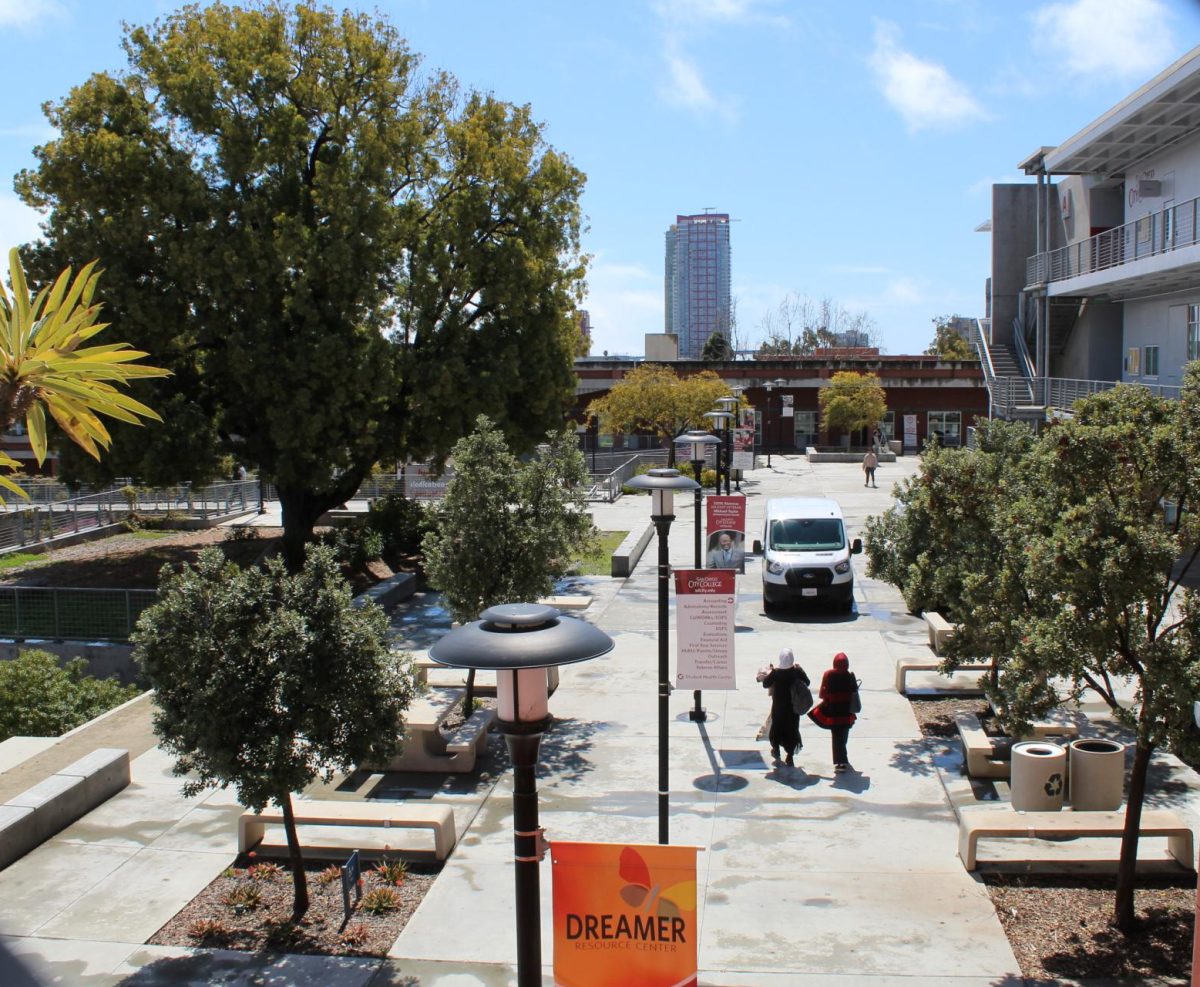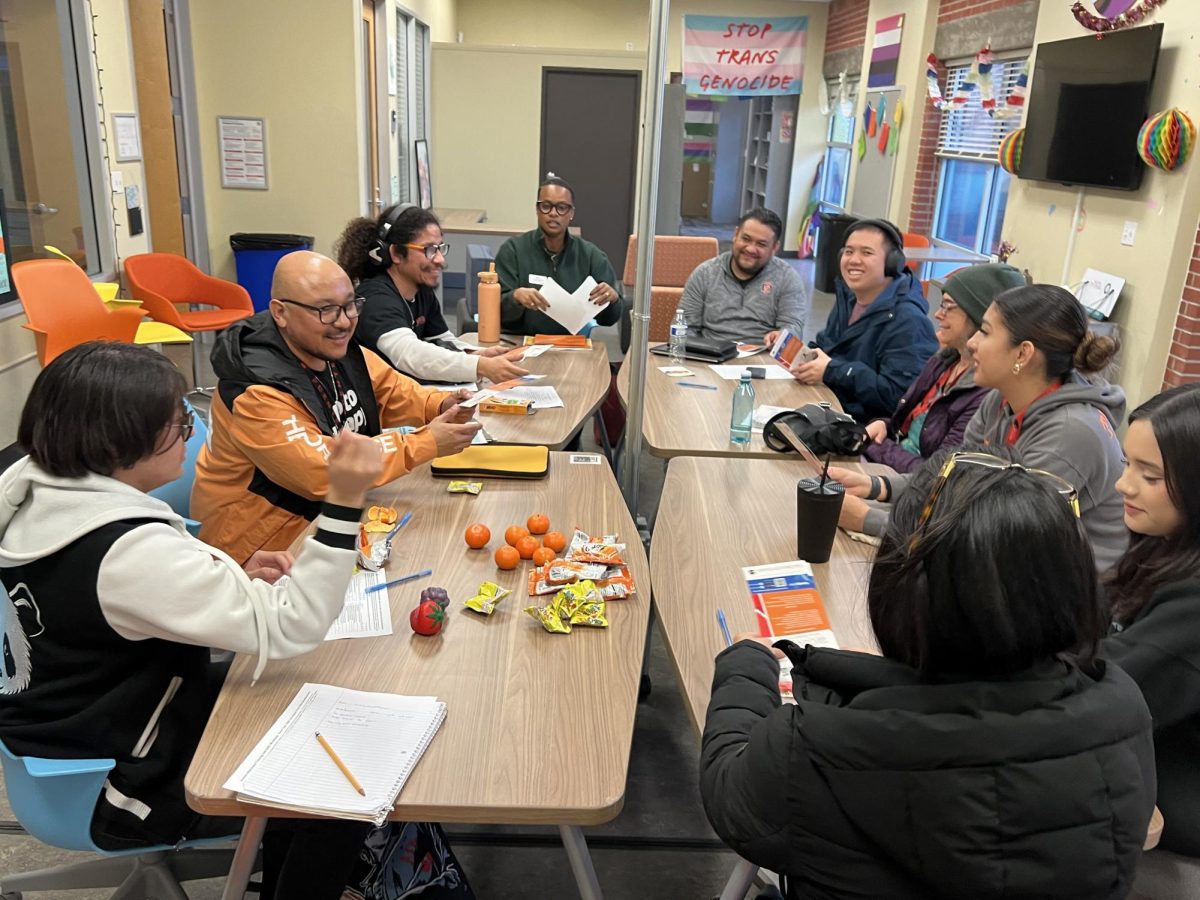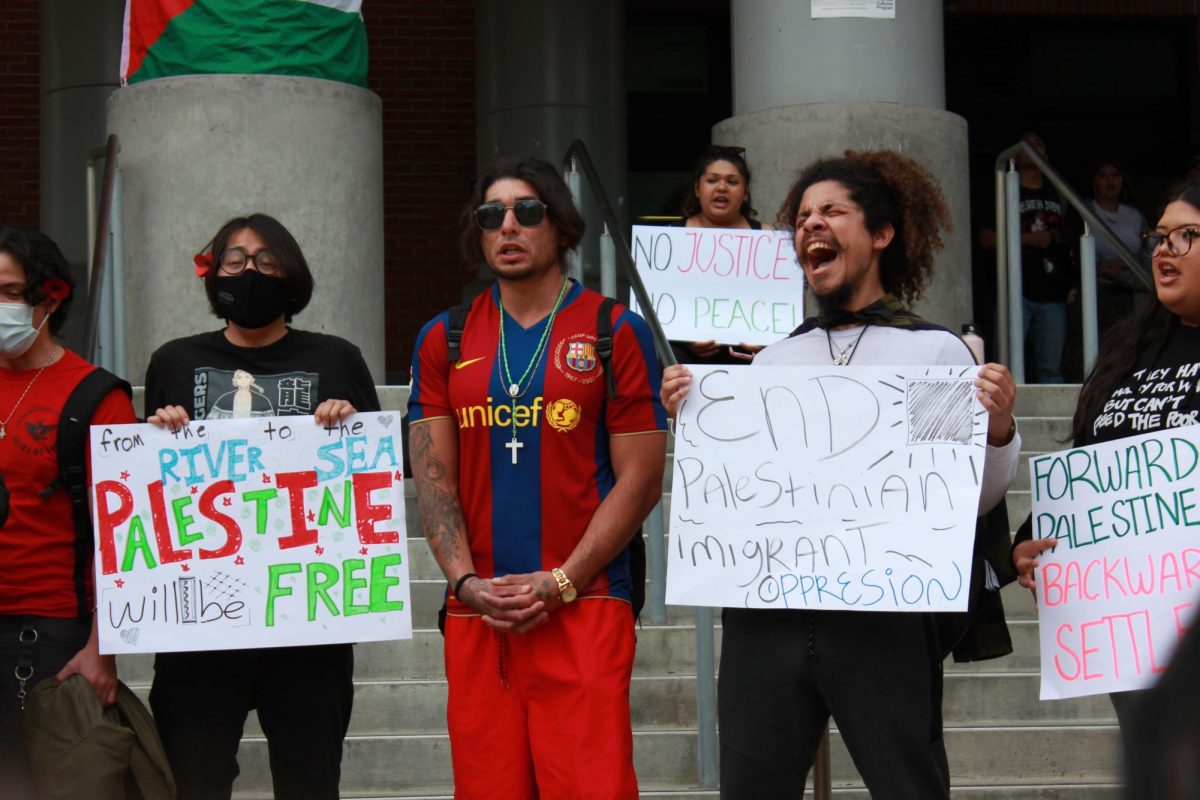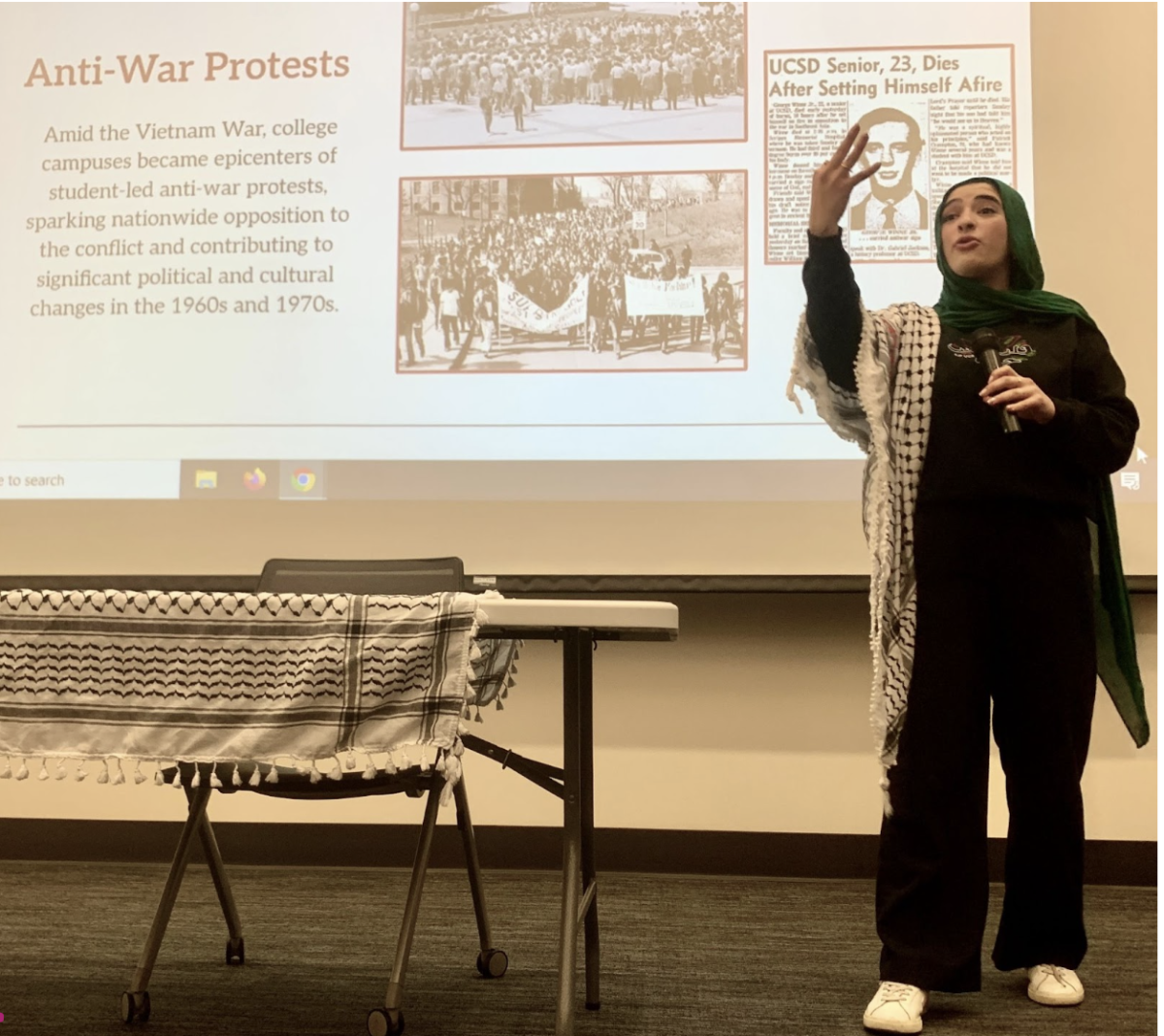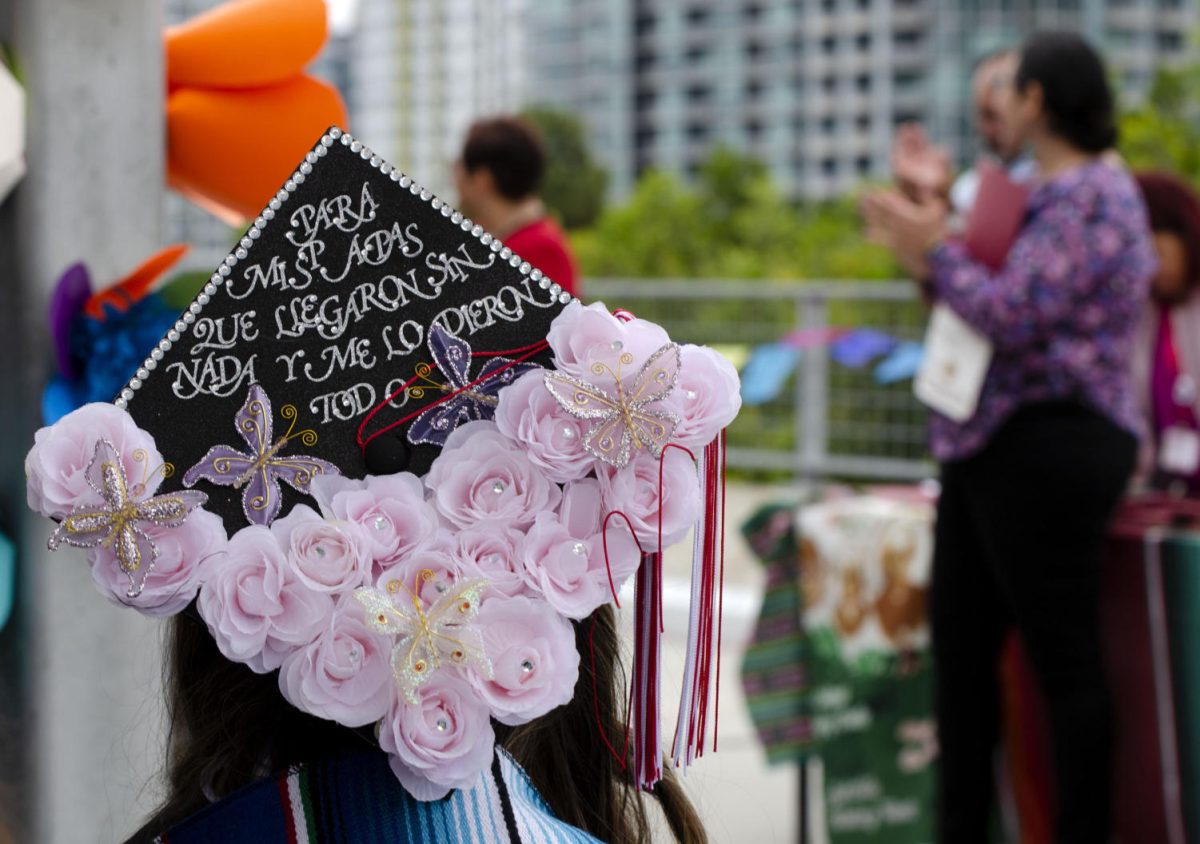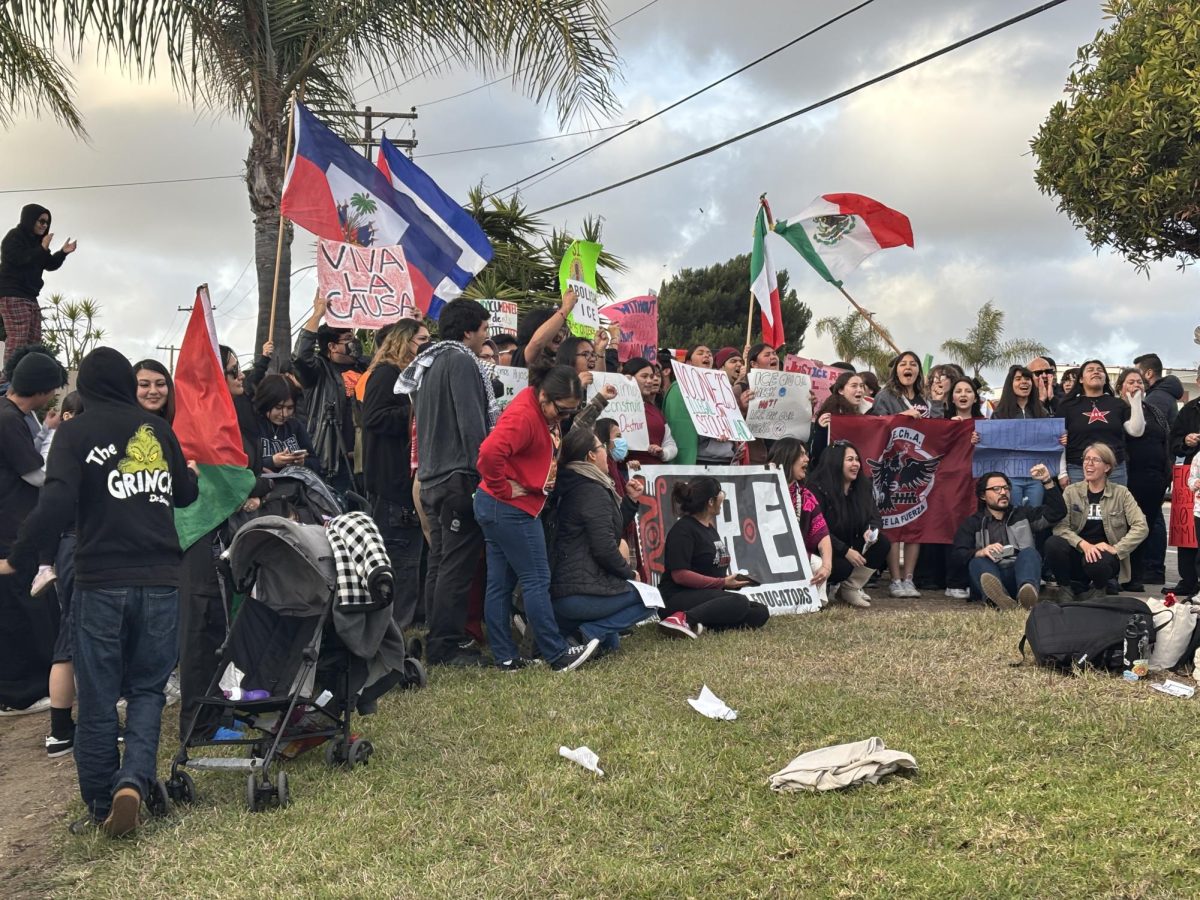The Fifth Bi-national Conference on Border Issues promoted activism as speakers called for collective action during the two day event held at San Diego City College Nov. 6, and in Tijuana Nov. 7.
Panels started at 8 a.m. at City College and ran until about 4 p.m. Registration began after the fist session, following City College professor Abel Macias, UCSD professor Lenna Tayseer, and UCSD honors graduate Sophia Lawson, at 9 a.m. The fee for admittance was $5 for students, but it was made clear that nobody would be turned away for not having the cash.
City College President Anthony Beebe and Dean Lori Erreca gave the opening remarks, introducing keynote speaker professor Francisco Lopez Barcenas, who spoke on behalf on the indigenous communities and mining mega projects in Mexico and energies.
The next panel started with a piece of American Literature. The poem “Harlem,” by Langston Hughes, was tied to Panel 2: Migration, held in room MS 162; woven in by Carlton Floyd.
Floyd, an African-American Ethnic Studies professor, stressed the importance of people of different skin color, groups and organizations coming together in solidarity with immigrants and undocumented immigrants in the U.S., drawing comparisons to Hughes poem of African Americans being lynched in the streets.
“I think one of the biggest needs that we have today, are ways to cross our various boundaries, to figure out how to collectively change the world in which we live, particularly right here at home in this country,” Floyd said.
The Survival of the Migrant Brother: a Testimony was part of the same panel, put together by San Diego City College student Evelyn Vidaca.
Vidaca, a student activist studying linguistics focused on the violence inflicted on migrants traveling not just from Mexico to the United States, but Central America as well. La Bestia, also known as the train of death was mentioned as well as MS-13, a Central American gang that preys on migrants on their journey north.
Vidaca commented on her participation after the panel: “I’ve always had a strong feeling towards immigration because I think we’re all brothers and sisters of the earth. I don’t think there should be borders — or like saying people are inferior because we’re this or that. I’m glad there are people here that want to make a change and spread awareness.”
Vidaca wasn’t the only student participating in the event. Luis Lopez, a City College student studying political science, known to many on campus for his involvement with border issues, presented on “fracking,” a term used to describe a process of fracturing the earth to extract natural gasses. This was part of a panel titled Transborder Communities.
After his presentation, during the question and answer section, Lopez responded to a question from the audience on how he got involved as a student: “I have a responsibility to the environment and the world I live in — to be involved, to be active; not just as a student but as member of society.”
The first day of events concluded with a reception, with food and refreshments for those in attendance, and closing remarks, with art on display, celebrating the work put into this year’s conference at City.


